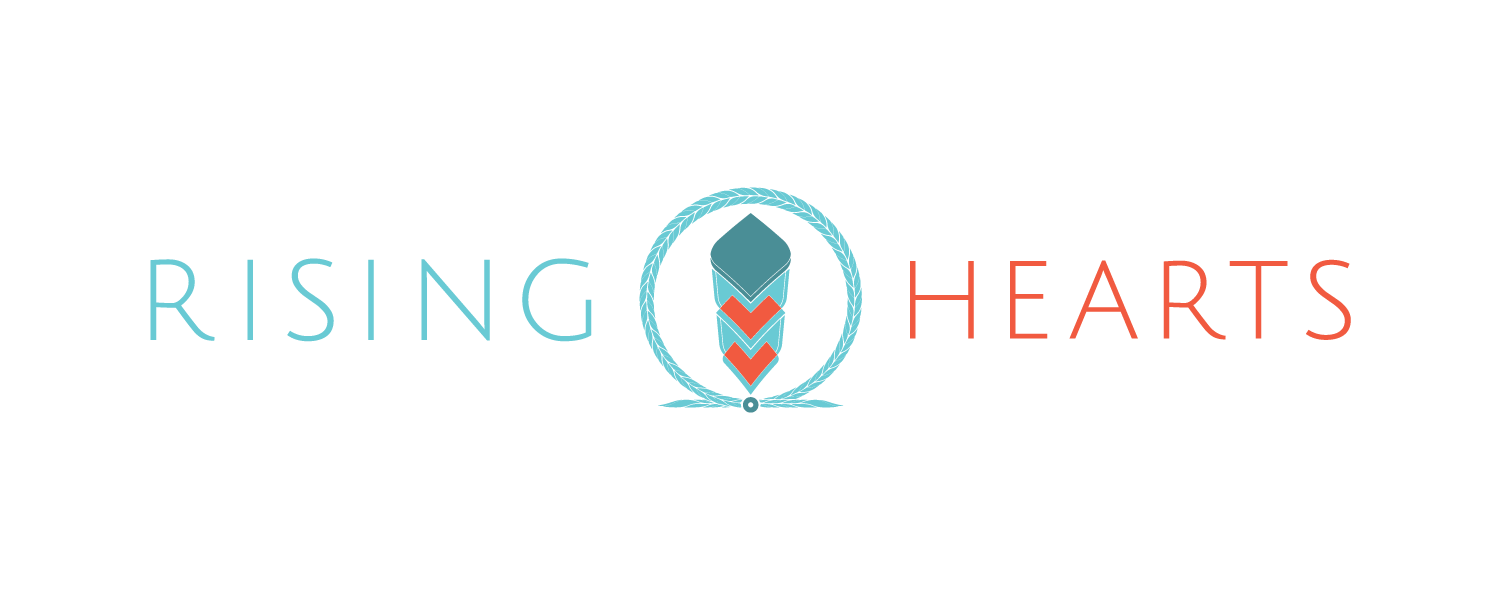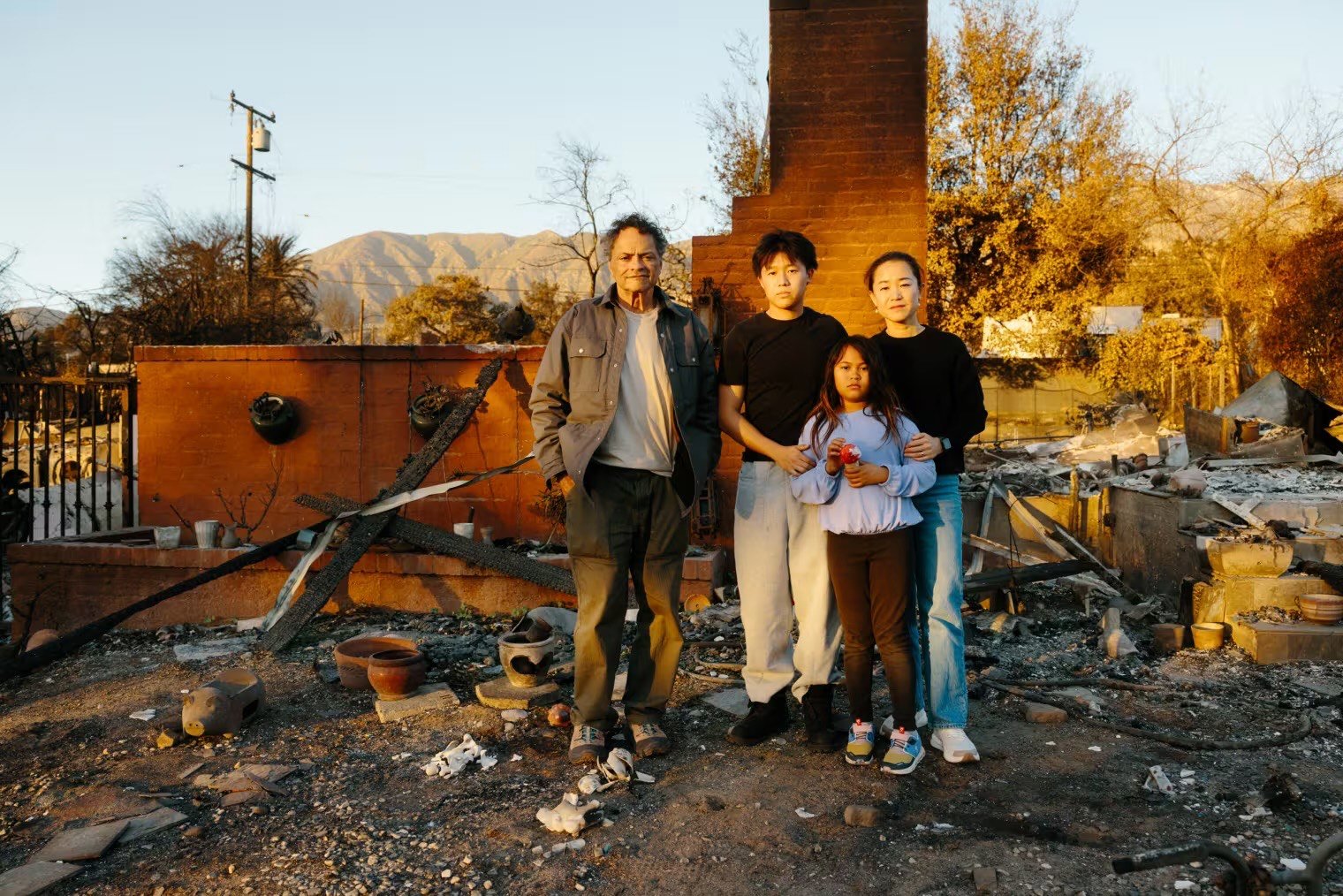The New Normal for A Climate Refugee
Rising Hearts wants to take the time to give our Athlete Advocate, community member and friend space to share her experience with the wildfires in Tovaangar ( Los Angeles ). We ask that you take the time to hold space for this beautiful person who is like family to Rising Hearts. Our hearts are with Jinghuan and her family and ALL the people that lost so much in the wildfires. We will give more updates in our March Newsletter but for now, please read Jinghuan’s story below. Thank you all for being a part of this community.
-Rising Hearts
It was raining lightly as I drove my daughter Colette to school this past Thursday. My mind was on a list of work projects while she listened to Morning Edition in the car. The news of a mass shooting in Sweden was on, and she asked me to turn it off.
“Mom, can we listen to music?” As we switched to 94.7fm, my mind shifted from work to a question: How do I explain mass shootings to my kids? How am I supposed to raise kids when a fire could destroy over 9,000 structures and uproot a community overnight? In what world is this normal?
Just a month ago, we evacuated on a seemingly normal Tuesday night. The Eaton fire was two miles away from us. Under the urge of a friend, we packed up some documents and a night worth of clothing. We stayed at a friend’s house nearby. The next morning, when my son and I drove back to check on the house and to pack more belongings, we saw the total destruction of our home, our entire street and block.
In a month, we stayed at two friends’ houses and a hotel, before eventually moving into a rental house. It still felt miraculous that the realtor chose us among 25 families that applied to this home. Every day, we chip away at making the rental feel a little more homey. My son Sammy put together two storage cabinets for the bathrooms. I obsessively hung a clock on the wall. A friend dropped off a scale with two batteries in. Our mug collection from my friends Leslie, Maggie and Sally has a mix of running memes and Valentine’s hearts. Though every day, I still think of the things I did not pack the night before the fire took our home. I think of my daughter’s second art folder. My son’s Guinness World Record certificate on the wall. A dagger my husband kept from his father, who served during World War II. Guilt washes over me like ocean waves, and often drags me down to the bottom of my depression.
Yet the biggest guilt comes from my failure to educate myself fully about the danger of wildfire. My inner dialogue goes, “How could you not understand how quickly fire spreads with 80-100mph wind?” “How did you not check Watch Duty every hour? You work in data! You’re supposed to track these things!”
And eventually, “how did you never think of the possibility of becoming a climate refugee one day?”
The hotel we stayed at for about 10 days housed many displaced families like us. Displacement looks like an elderly couple in their 80s, holding hands and slightly shaking as they walk out of the elevator. Displacement looks like tens of dogs in and out of the hotel at any given moment. Displacement looks like lining up for free breakfast with others who also lost their homes. The comfort of a French press, a toaster and a full-sized fridge weren't to be taken for granted. I even had to fight for two rooms for us. Otherwise the insurance was going to declare a job-well-done for squeezing four of us into one room.
Displacement made me realize the Eaton fire, the second most destructive in the history of California, could happen again. When I thought of climate refugees in the past, my mind went to villagers along the Java Sea in Indonesia. It went to those devastated by Hurricane Katrina in New Orleans and by Hurricane Helene in Asheville. It never went to our family, who’s made a home in Altadena in the last 12 years. A place surrounded by the Angeles Crest Mountains, where I could escape for a run any time of the day. Climate refugees seemed to only refer to people without much means or resources. The term climate refugees was never invented to describe those with the privilege of a work-from-home lifestyle, was it?
Yet this has become my reality. For days, I checked myself into a shelter at the Pasadena Convention Center and lined up for free breakfast. I went to a medical tent to have my husband’s prescription refilled. After we left the hotel, I still went to World Central Kitchen as often as I could. The free quesadillas, bottled water and hygiene supplies were hard to miss. I stood in line for two hours at the JCrew Factory store in Pasadena, trying to get a few free shirts and fleece jackets for the family, even though friends have generously donated clothes.
During those days, my mind was unsettled. It was burdened by an urgency to hoard as much as I could for my family, because I was terrified we did not have enough. Even though, eventually I realized that clothes from my friends’ donations turned out to be plentiful. My mind was trapped in panic.
Aside from making our rental feel more like home, we’re also trying to build up our routine again. That comes with a radical acceptance of our reality as climate refugees. Having lost our home, we value the beauty of a routine and stability now more than ever. From going for a run in the morning, to driving my daughter to school and taking her to swim practice, I hold on to this daily rhythm as medication for my depression. Temporarily turning off the news is part of my self-care now.
What remains unchanged is a renewed commitment to fighting climate change and injustice. Because now I know, the fate of becoming a climate refugee could fall on anyone on any day. And we don’t have to be climate refugees. We can always choose to be climate activists.
Jinghuan and Her Family
FUNDRAISING UPDATE FOR JINGHUAN AND FAMILY: $72,617 currently with a goal of $100,000k
Rising Hearts Led Efforts: + We helped start a gofundme for our Running With Purpose Athlete Advocate, Jinghuan Liu Tervalon and her family, who lost their home from the Eaton Wildfire. Through our kinships with On Running and Patagonia, we were able to donate clothes and shoes to 6 families and individuals, and 2 Indigenous led nonprofit efforts. + Rising Hearts also has shipped 10 boxes of gently used or new items of clothing, toddler/baby clothes, shoes, handbags, kids drink and snack tupperware, kids toys, and books to 3 nonprofits helping to distribute items throughout the community.
A disaster like this can take years for people to recover. We are so grateful for your support - whatever you can contribute."




